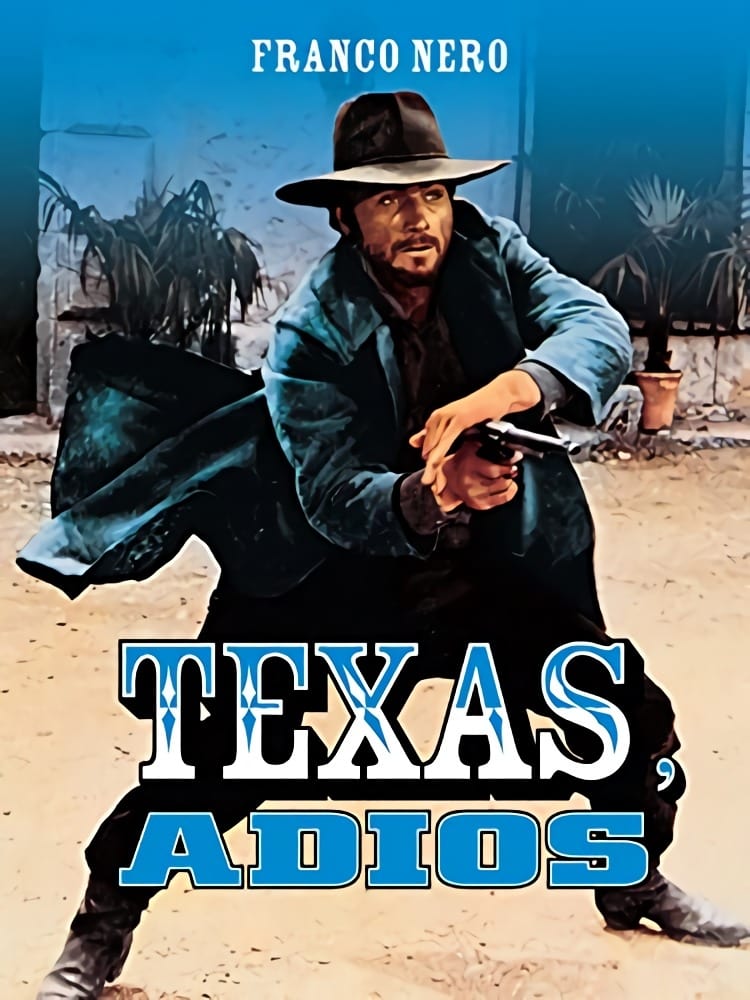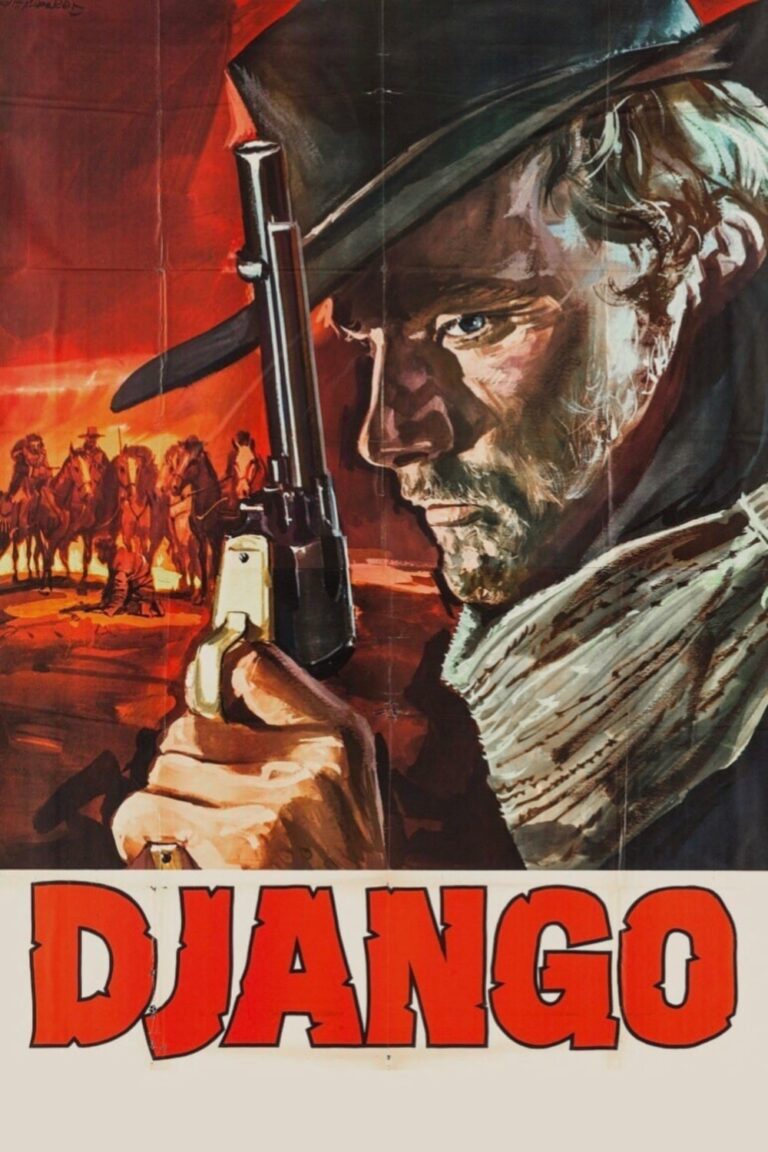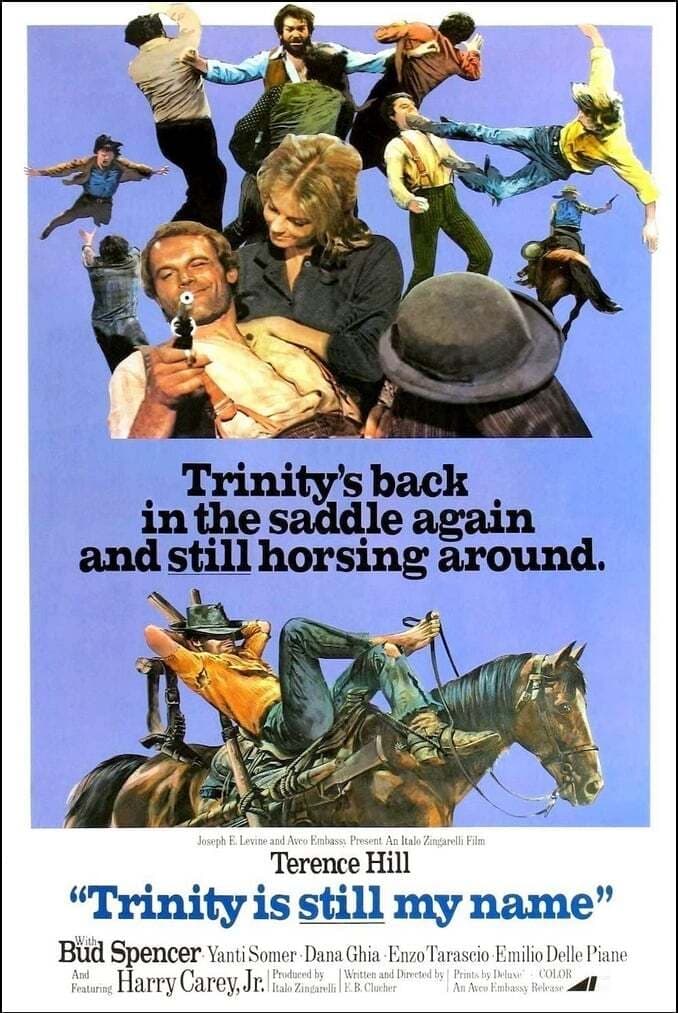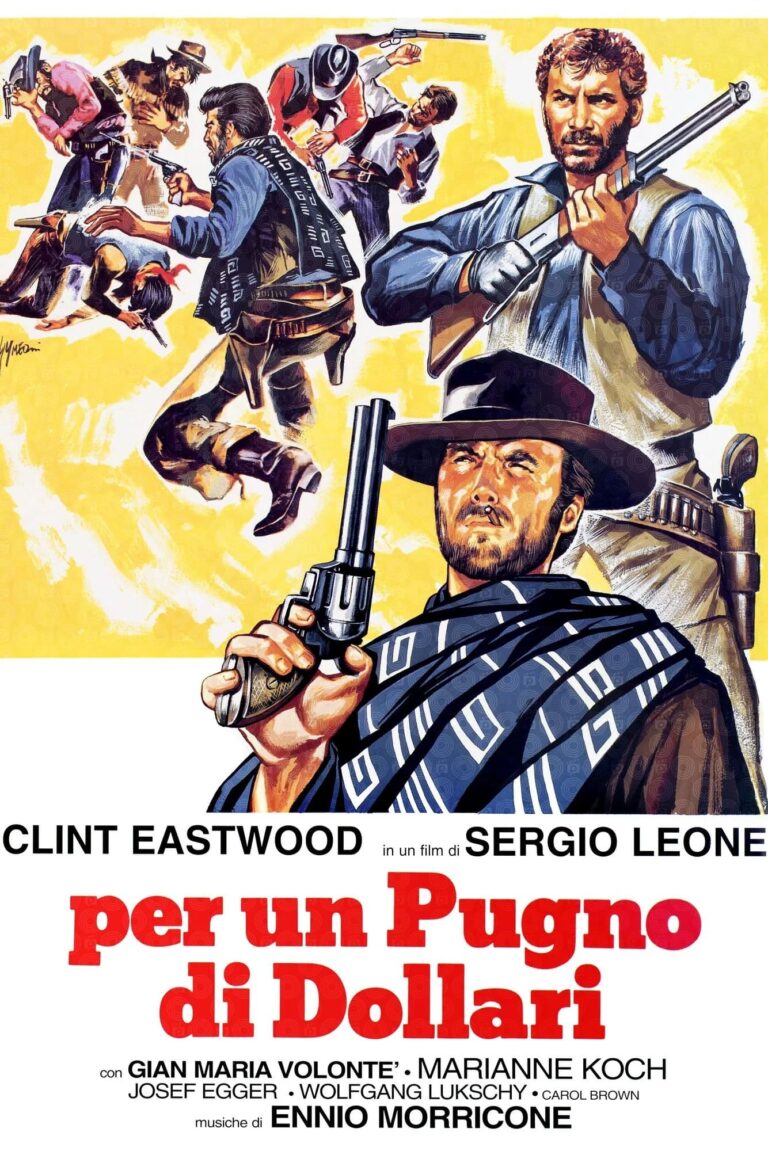
Released in 1966, Texas, Adios (Texas, addio in Italian) is a striking entry in the Spaghetti Western genre. Directed by Ferdinando Baldi and starring Franco Nero in one of his most iconic roles, the film combines the action-packed grit of a Western with the emotional depth of a family drama. While it retains many hallmarks of the Spaghetti Western—stylized gunfights, moral ambiguity, and a starkly beautiful desert setting—it also introduces themes of loyalty, brotherhood, and redemption that elevate it above standard genre fare.
Often overshadowed by Franco Nero’s career-defining turn in Django (1966), Texas, Adios is nonetheless a significant film that showcases the evolving scope of Italian Westerns in the mid-1960s. This article explores the film’s plot, themes, characters, production, and legacy, highlighting its unique place in the canon of Spaghetti Western cinema.
Plot Summary: A Quest for Justice and Family Revelation
Texas, Adios opens with Burt Sullivan (Franco Nero), a stoic Texas sheriff, resigning his post and setting out for revenge. Accompanied by his younger brother, Jim (played by Alberto Dell’Acqua), Burt crosses the border into Mexico in search of Cisco Delgado (José Suárez), a notorious outlaw who killed their father many years earlier.
Burt is driven by a single-minded desire to bring Delgado to justice. However, their quest soon becomes more complicated when Burt and Jim discover shocking truths about their own family. Delgado is not only their father’s murderer but also Jim’s biological father, making him Burt’s stepfather. This revelation forces Burt to confront his hatred and question his moral code as he balances his need for vengeance with his responsibility to his brother.
As Burt and Jim navigate this emotional and moral quagmire, they become embroiled in a conflict between Delgado and the oppressed villagers who are desperate to overthrow his tyranny. The film builds to a climactic showdown, where justice, loyalty, and redemption come to a head in true Spaghetti Western fashion.
Themes: A Western with a Heart
1. Vengeance and Justice
Like many Spaghetti Westerns, Texas, Adios is rooted in a quest for vengeance. Burt’s journey to confront Delgado is driven by a desire to right past wrongs, but the film complicates this narrative by introducing familial ties that blur the line between justice and personal retribution.
2. Family and Brotherhood
The relationship between Burt and Jim is at the heart of the film. Their bond is tested by the revelations about their family’s past, and their interactions reflect the tension between loyalty and the pursuit of justice. Burt’s role as both a brother and a surrogate father figure to Jim adds emotional weight to the story.
3. Oppression and Resistance
The film also explores themes of power and resistance. Delgado’s reign of terror over the villagers serves as a backdrop to the personal drama, highlighting the broader struggle between tyranny and freedom that defines much of the Western genre.
4. Redemption and Forgiveness
In contrast to the more nihilistic tone of many Spaghetti Westerns, Texas, Adios offers a redemptive arc for its characters. Burt’s ultimate decision to prioritize justice over revenge reflects a deeper moral complexity, and the film’s conclusion emphasizes the possibility of reconciliation and forgiveness.
Characters: Heroes, Villains, and Moral Complexity
1. Burt Sullivan (Franco Nero)
Franco Nero brings his trademark intensity and charisma to the role of Burt Sullivan. As a classic Spaghetti Western antihero, Burt is stoic, resourceful, and unyielding in his quest for justice. However, Nero also imbues the character with vulnerability, particularly in his interactions with Jim and his struggle to reconcile his emotions with his sense of duty.
2. Jim Sullivan (Alberto Dell’Acqua)
Jim serves as a foil to Burt, representing innocence and youthful idealism. His admiration for Burt is tested by the revelations about their family, and Dell’Acqua’s performance captures Jim’s emotional turmoil as he grapples with the truth about his parentage.
3. Cisco Delgado (José Suárez)
José Suárez delivers a chilling performance as the film’s antagonist. Delgado is a ruthless and calculating villain, but his connection to the Sullivan family adds layers of complexity to his character. The tension between Delgado’s cruelty and his familial ties to Jim creates a compelling dynamic that drives the film’s narrative.
4. Supporting Characters
The villagers, though secondary to the main plot, play a crucial role in emphasizing the film’s themes of oppression and resistance. Their plight serves as a catalyst for Burt’s ultimate transformation from a vengeful lone wolf to a more selfless hero.
Ferdinando Baldi’s Direction: Balancing Action and Emotion
Director Ferdinando Baldi, known for his work in both Spaghetti Westerns and peplum films, brings a steady hand to Texas, Adios.
1. Action Sequences
The film features expertly choreographed gunfights that capture the raw intensity of the genre. Baldi’s use of dynamic camera angles and close-ups heightens the tension during these sequences, making them some of the most memorable moments in the film.
2. Emotional Depth
What sets Texas, Adios apart from many other Spaghetti Westerns is its focus on character development and emotional resonance. Baldi takes the time to explore the relationships between Burt, Jim, and Delgado, allowing the audience to connect with the characters on a deeper level.
3. Visual Style
Cinematographer Enzo Barboni, who would later direct the Trinity films, captures the arid landscapes of southern Spain with a painterly eye. The desolate terrain serves as both a visual metaphor for Burt’s internal struggle and a striking backdrop for the film’s action.
Music: A Stirring and Atmospheric Score
The score by Anton Garcia Abril complements the film’s tone, blending traditional Western motifs with melancholic melodies that underscore the story’s emotional beats. The main theme, with its soaring vocals and haunting instrumentation, captures the spirit of Burt’s journey and the film’s themes of justice and redemption.
Legacy: A Lesser-Known Gem of the Genre
1. A Showcase for Franco Nero
Coming off the success of Django, Texas, Adios further established Franco Nero as one of the leading figures in Spaghetti Westerns. His performance in the film highlights his versatility as an actor, balancing the stoicism of a gunslinger with the emotional depth of a man grappling with his past.
2. A Transition for the Genre
Texas, Adios bridges the gap between the traditional Westerns of the 1950s and the grittier, more stylized Spaghetti Westerns that dominated the 1960s and 1970s. Its blend of action and melodrama reflects the genre’s willingness to experiment with narrative and tone.
3. Cult Following
While not as well-known as Django or The Good, the Bad and the Ugly, Texas, Adios has gained a dedicated fanbase over the years. Its compelling story, memorable characters, and striking visuals have earned it a place among the hidden gems of Spaghetti Western cinema.
FAQs
1. What is Texas, Adios about?
The film follows Texas sheriff Burt Sullivan and his younger brother, Jim, as they travel to Mexico to seek revenge on a man who killed their father, only to uncover shocking truths about their family.
2. Who directed Texas, Adios?
The film was directed by Ferdinando Baldi, an Italian filmmaker known for his work in Spaghetti Westerns and other genres.
3. Who stars in the film?
Franco Nero stars as Burt Sullivan, with Alberto Dell’Acqua as Jim Sullivan and José Suárez as the antagonist, Cisco Delgado.
4. What makes Texas, Adios unique among Spaghetti Westerns?
The film combines traditional Western action with a more melodramatic and emotional storyline, focusing on themes of family, loyalty, and redemption.
5. Where was the film shot?
Texas, Adios was filmed in southern Spain, a popular location for Spaghetti Westerns due to its resemblance to the American Southwest.
Conclusion: A Western with Heart and Style
Texas, Adios is a compelling blend of action, drama, and emotional depth that stands out in the Spaghetti Western genre. With its gripping story, strong performances, and memorable score, the film offers a fresh take on the classic revenge narrative while staying true to the stylistic hallmarks of Italian Westerns.
For fans of Franco Nero or the genre as a whole, Texas, Adios is an essential viewing experience—a film that proves Spaghetti Westerns can deliver both thrilling action and heartfelt storytelling.






